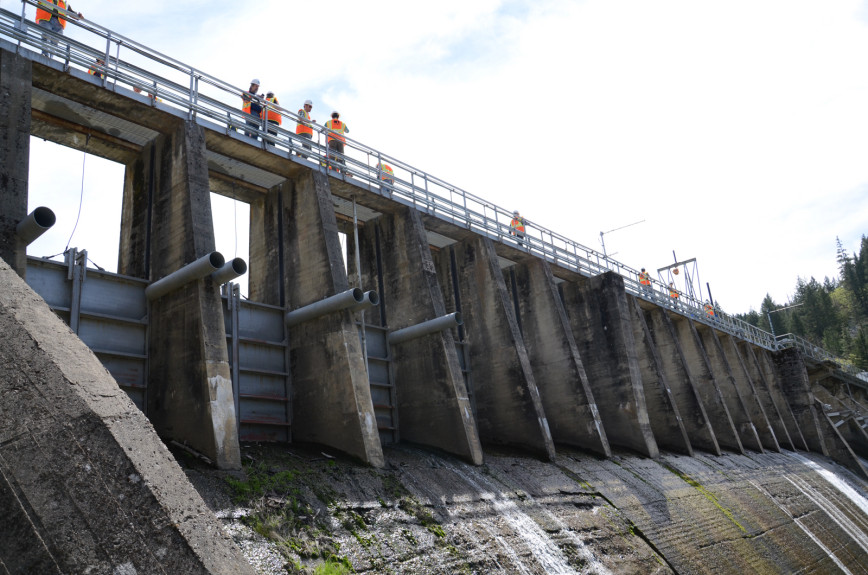Coalition still made up of five partners

By Justine Frederiksen, The Ukiah Daily Journal, November 27, 2019
A coalition now calling itself the Two-Basin Partnership announced this week that it has hired a firm to evaluate different options for the hydro-electric dam called the Potter Valley Project.
“I am committed to finding a realistic, sustainable solution that provides water to the people who rely on this project year-round,” said Janet Pauli, chairwoman of the Mendocino County Inland Water and Power Commission. The commission is one member of the five-partner coalition, which also includes California Trout, Humboldt County, the Round Valley Indian Tribes and Sonoma Water. “It’s a long-term, complex process, but the partnership is committed to working together toward our shared objectives, and the feasibility study is going to help us evaluate our options.”
Conducting that feasibility study will be Stillwater Sciences, which will be “evaluating the long-term options and a potential licensing proposal for the project … with the goal of pointing to a pragmatic way forward that meets the needs of water users that depend on Eel River water, as well as fish and habitat in both the Eel and Russian River basins.”
The firm was selected, the coalition notes in a press release, because of “its experience with the Federal Energy Regulation Commission (FERC) relicensing process, familiarity with the Eel and Russian River systems, and experience facilitating a complex comparative analysis of options and tradeoffs.”
The coalition anticipates that the feasibility study will “identify and evaluate various potential structures for a Regional Entity that will apply for and assume a new license” for the project, which is still owned and operated by Pacific Gas and Electric, though the company decided not to renew its license, essentially abandoning the dam.
If a new license is issued, the coalition also hopes that the feasibility study will cover “options for potential modifications to the project; ongoing operations and maintenance requirements; a fisheries restoration plan; and a financial plan that specifies funding and revenue to support long-term water diversions and ongoing facilities operations.”
“The feasibility study will allow us to move this project forward in an informed way where science drives our decision-making,” California Trout Executive Director Curtis Knight was quoted as saying in the release, describing the firm chosen as having “the experience and qualifications to provide the partners with the critical information we need to identify a realistic and sustainable solution for all of the parties involved.”
While giving an update to the Ukiah City Council earlier this month on the coalition’s successful filing of a Notice of Intent to re-license the project with FERC, Pauli said that Lake County officials had recently expressed interest in joining the coalition.
Pauli said the IWPC then nominated Lake County as a potential partner, but ultimately the five partners decided they “did not want the voting group to get any larger,” especially given the tight deadline for the feasibility study to be completed: April 2020.
However, Pauli said Lake County is still part of the ad-hoc committee that Rep. Jared Huffman (D-San Rafael) formed and which originated the idea of a Two-Basin Solution, and that the IWPC is sponsoring Lake County as a “common interest agreement partner.”
“Huffman envisioned a two-basin solution, and what that means is a way to ensure water supply stability, while at the same time creating habitat restoration in both (the Eel and Russian) river systems for listed and threatened species,” Pauli told the City Council. “And it’s true probably to say that while we hope that we get what we need, we may not get what we want. But water supply reliability is half of the equation, and we intend to make sure that it’s realized.”

